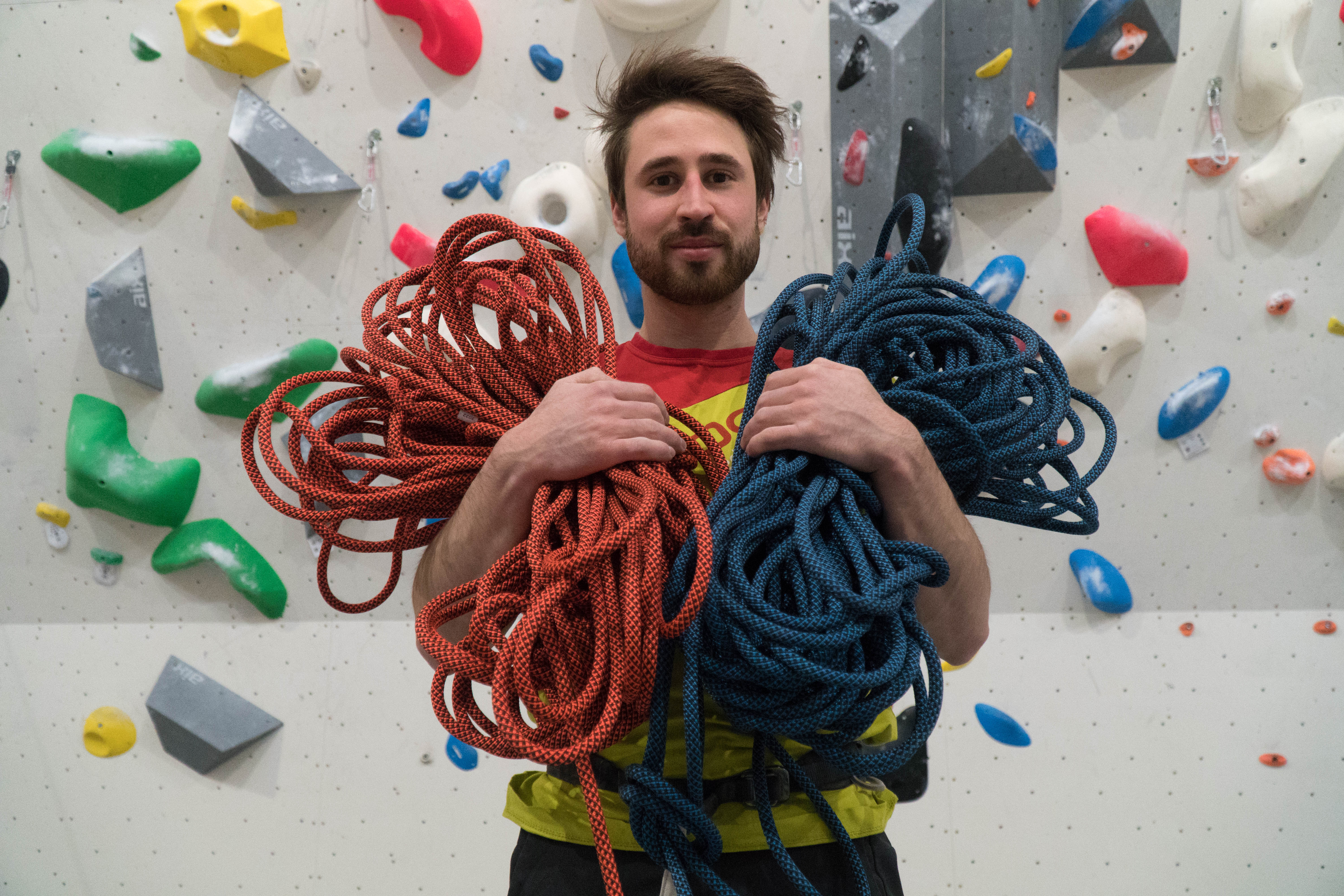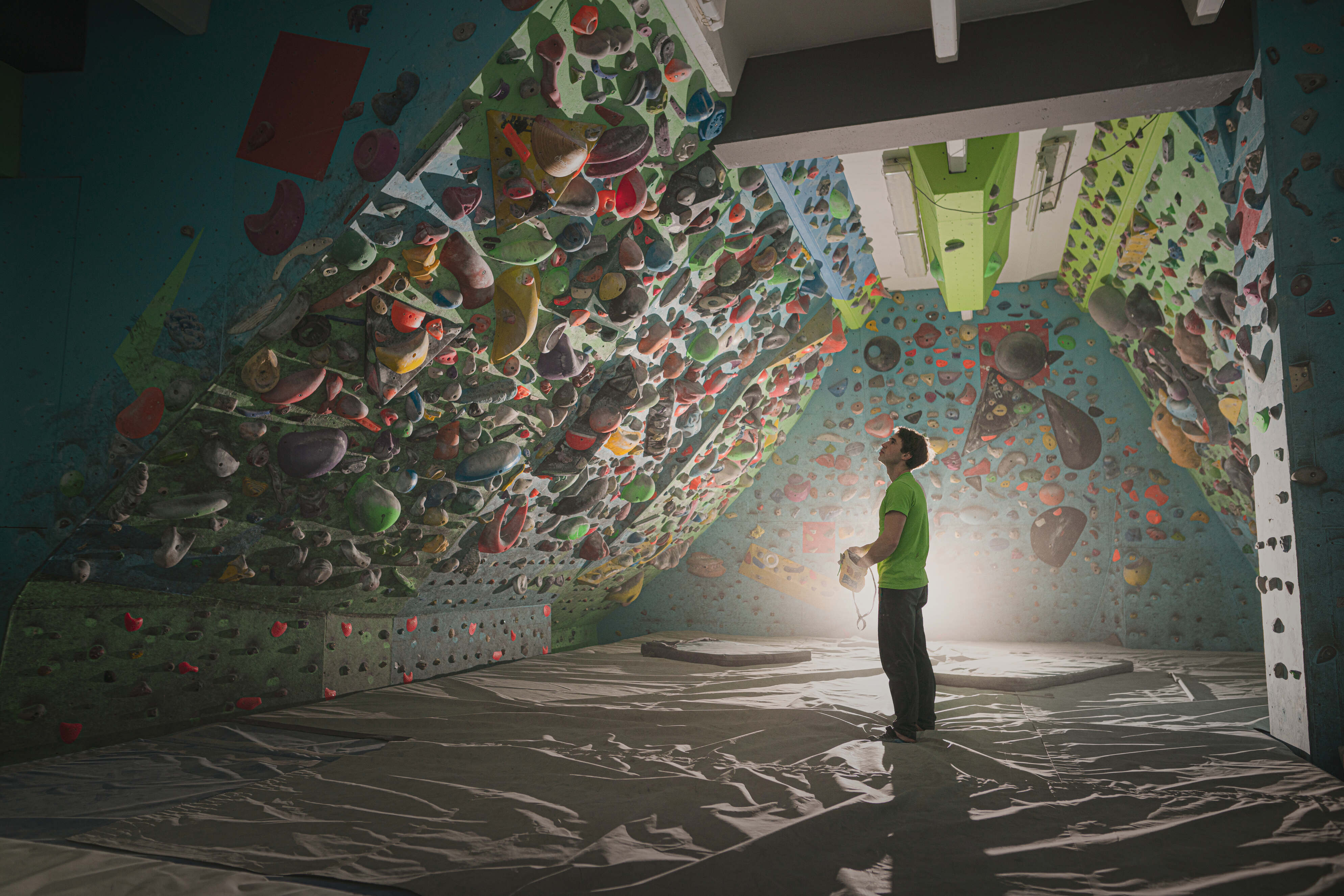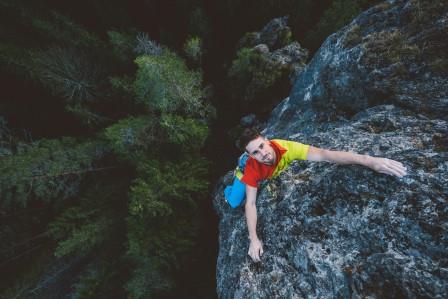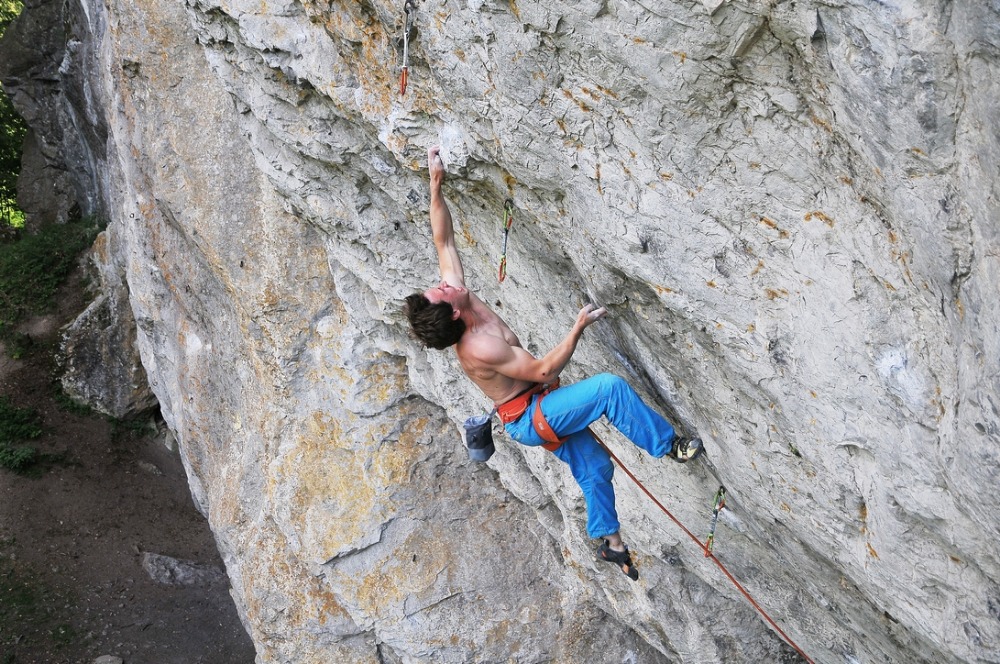| Building a boulder or a wall? |
| Climbing and living in Spain or the Czech Republic? |
| 9a or build the finals on the WC? |
| VW Multivan or cottage in Siurana? |
| Moustache or sideburns? |
| Rice or pasta? |
Do you have a climbing and building model or why?
I definitely have Adam Ondra as my climbing role model. He has always inspired me with his determination and motivation to climb. To do everything to the fullest and to follow your dreams. That's definitely inspiring enough for me! I don't have anyone in particular as a builder role model. I like the way Japanese builders approach building. They think about every move, why they do it, and so overall they have a different approach to building.
Who is the world's superpower in the education of builders and why?
I don't think you can quite say that any country is a superpower in the education of builders. I think it's just due to the very attitude of the individual. A lot of the good builders come from the aforementioned Japan, but it's also because the trend in building is more towards the style of building in Japan. That's why so many good builders come from here. And it's also because they have great performance and overall preparedness. On the other hand, we European builders have a slightly different style. I think it complements each other beautifully.
What name do Czech builders have in the world and are we better rated in bouldering or rope?
I guess I can't answer this question completely, because in the Czech Republic only a handful of people are building for a living. If I speak for everyone, they like to invite us to Germany, Austria, which probably means that we do the job well and they are satisfied with us. Commercial building is a completely different world from racing, so it's hard to evaluate. I try to go to races abroad defacto by myself. Vojta Trojan has been stepping in lately, which is great that young blood has the motivation to step into race building. The best way to answer this question would be to ask foreign builders how satisfied they are with us. But I don't think we're a disgrace. :) Whether bouldering or rope, I don't know. I'm more of a rope climber and focus more on that. Vojta is more into bouldering.

What would your yearly preparation look like if you had a sponsor to cover all your climbing and personal expenses?
That's a good question! When I think about it, it sounds pretty damn tempting! It depends on how generous the sponsor would be, and how much they would be willing to offer, because the actual training is quite different from that too. If we're talking about the highest version, where training can cost over 100k a month, it would look like this. For there to be any preparation, the target must be known. Without it, it's impossible. Since I've always been a rock climber, my goals would be in that direction. I enjoy both rope and bouldering. But I know that you can't completely combine the two. If I want to be the best on rope, I have to dedicate myself to it and vice versa. A lot of people here will have a different opinion and I agree. There are a lot of variables here, so it would be a longer discussion. I would set my goal to climb a route at 9a+ difficulty. Preferably 9b. But that's such a lottery that it either works out quickly or never. I could pick a route that suits me and practice that route over and over until it falls, but I don't think I'd enjoy that. That's why I would like to practice as many complex things as possible in that preparation, so that I would be able to adapt to multiple routes in those difficulties. I would have a goal and now the preparation itself. I'd have to give up everything I've done so far. Building, hobbies, business, and many other things related to life or work. I would just have the climbing, because the preparation is not just about going to training, training, and that's it. Preparation starts from waking up and ends with going to bed at night. I would entrust my preparation to people who understand and can lead me to my goal. And we're talking about a trainer, a physiotherapist, a doctor, a nutritionist including a chef, a massage therapist and a group of people who would do that kind of support for me. They'd drive, they'd arrange, they'd provide, etc. That way I'd ride for a whole year under supervision, work my ass off every day and then be excited to see what the results would be. Could I do it? Would I be able to do it? Would I meet my goals? It's hard to say. I'd be motivated because opportunities like this don't just come along. So, are we gonna do this with Tendon? :)
Do you ever plan to move away from competitive climbing and sport projects to mountain climbing or multi-pitch?
I definitely plan to and I've had a couple of projects in my head that I wanted to do last year, but somehow haven't gotten around to it yet. Mountains in the winter don't really appeal to me, but to climb a wall climb, I'd be up for that. It's all about doing good preparation, because I'd like to climb harder stuff and that's completely different than climbing sport climbs. Weather, fatigue, altitude, psyche all play a part and you can't do it without that.
How limiting is your height in climbing? If someone is tall, they can "piss" as they say, does a shorter stature have any advantages too?
I think that my height of 162 cm (sometimes I have half a cm extra, so watch out:) ) is not so limiting, on the contrary. I weigh less and can move better than if I were somehow too tall and heavier. Climbing on lime so it basically doesn't matter. I can always find a foothold or an extra leg somewhere. But on sand, I think it's very limiting. There's just no extra hold. It's the same with bouldering. It's either gonna fit or it's not gonna fit. It's always a challenge for me to kind of wrestle with it and do it. Sometimes I think it would be nice if others would try to put themselves in my shoes and try to see how much harder the steps are than normal. I myself would be interested to see what the hardest climb I've actually done in my life is. On paper I have 8c+ but sometimes I think I've climbed that 9a a long time ago. :)

You recently tried climbing in Adršpach. How did this experience impress you and is there a chance that we will see Denise more often in pairs than under artificial light?
So climbing in Adršpach is a whole new world for me! I've only climbed on sand a few times and didn't have the best feeling about it. Long climbs, salt, can't stand on my feet, can't see holds, just one big mess :) I would definitely like to go on sand and learn how to climb on it, it would be a shame if I didn't go on it when it's almost behind my house. :) Only when I go to the rocks, I prefer to choose lime or granite, because I enjoy crushing myself in the overhang behind the holds than tuning the wheel on nothing. Everything has its charm and I'm definitely not done with sand.
How intense is the build up to the SP race? Could you describe the day/days?
Since I have only one SP and a few European Cups so far, when I compare it to the Czech Cup for example, it differs in several aspects, such as the performance or difficulty of the build. The intensity is very high, because you are building for the best climbers in the world and they will always be better than you, so we are fine-tuning all the details of how it will look. Last year I had the opportunity to build SP in Prague on Letná and we built it in 5 days in 8 builders. The team is always made up of several builders and since it is an SP, it is also made up of several nationalities. The main builder of the race was Akito from Japan, then Pierre from France, Olga from Poland, Cody from America, Kaito from Japan and me, Jenda Šolc and Vojta Trojan in Czech representation. The main builder always informs the team before the start of the build what will be built when, how he envisages it and what the deadline is. If I had to describe one build day, it would look like this. At 7am the alarm rings and on the way to the racing wall we get the coffee that is really needed. Then we have a meeting where we decide what will happen that day. Who is going to build what, what style is going to be built, what holds, what moves, logistics of the bouldering, difficulty, for what category, how many tops we want to have... There's a lot of stuff. Once we've passed that information along, we're off to build. Almost every time it works out to 1-2 boulders a day for one builder. He builds all morning, and if needed he comes in the afternoon. Depending on how it goes, then it's testing time. This process takes a lot of time. Sometimes it takes 4 hours to tune a boulder. Once all the boulders have been tuned and approved by the head builder, we mark them with a marker, take them down and take them to the container where we store them until it's time to put them on the wall. You can never fit all the boulders on the wall, so we take them off and mark them with a marker so we know where to put each hold back on the wall. We take pictures, videos, discuss and figure out tactics for the next days. What the weather is like, what the humidity is like, how sharp the holds are against the skin of the competitors, etc. The day is quite long and we always finish around 8pm. The exception was on race days when we would build at night. After the build we would go out to dinner together in town and talk about what was going to happen the next day, what the plan was and of course chat about other things besides just the race build :)
When it happens that the builder/builders build the boulder "wrong" (everyone climbs over it or no one even enters) does it have any response from the organizers?
Well, it certainly has a response. They are finding out why it happened and what the reason was. Building is such a thankless job, especially race building. It's such a lottery that a builder can be the best in the world and it can still end in disaster. The weather changes, it rains, the holds get wet or the racers misread the boulder and make a mistake. Is it the builder's fault? It's very debatable. As builders, we always try to deliver the best work and we want it to be the best race. The biggest punishment for us is when competitors or even spectators are disappointed. We get bad results, the race goes wrong and we know we can't control it. And all we have to do is turn the bar a little bit more positive and it would be a perfect race. Millimetres play a role in the build and every millimetre determines whether the race is good or not. Unfortunately, we won't know if it's good or bad until the race is over.



